Archive: Year 2020
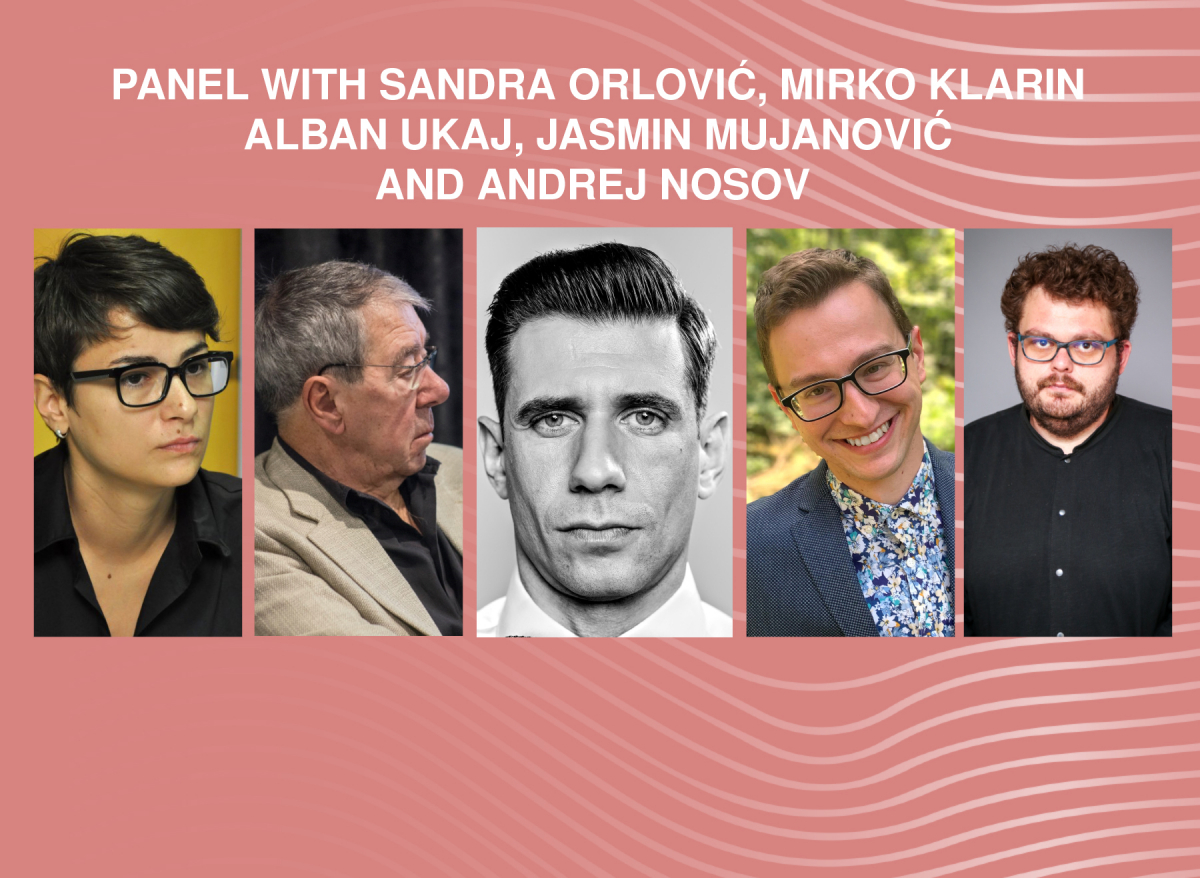
Panel Discussions
APPLYING LESSONS FROM THE PAST
Rewriting history frequently happens in the service of building a one sided cultural or national narrative. Conflicts, social and political turmoil in Former Yugoslavia were centred around political interests of different ethnicities that allegedly could not be settled in a nonviolent way. The generic and simplified narratives shield actors from their part of responsibility, thus offering space to all sides for an bias approach. Such narratives present the conflicts in black-and-white terms, attempting to diminish the systematic killings, displacements and forced disappearances. Lack of accurate documenting, could lead to attempts for equal culpability and creates space for denial which is the first step in shielding powerful actors from responsibility to the violence. Our diverse Panel of experts, scholars and filmmakers will draw from their personal experiences and works to discuss how we can use and transmit credible and verified information about the violence in the past? How can material evidence from the past transform bias narratives? In our ‘View From the World’ special program we will be presenting “Irradiated” a latest documentary film of celebrated Cambodian filmmaker Rithy Panh, where he uses archive footage to depict the devastation of 20th century wars. Panh has densely packed his film with war footage, specifically, of bombings, torture and massacres, from start to finish, while using a three-screen projection technique to multiply the effects. The Panel Discussion is a result of an extensive collaboration of DokuFest with Humanitarian Law Center Kosovo. In connection to this year’s Panel Discussion we are pleased to present the untold stories from Kosovo War. More than 20 years have passed since the war in Kosovo ended, more than 13,500 people have been killed and/or went missing. Thousands of stories of misfortune and terror took place all around Kosovo, many of them untold. Humanitarian Law Center and Humanitarian Law Center Kosovo have been collecting fact-based materials and documenting killed and missing persons as result of the war. The evidences such as statements of eyewitnesses and family members of victims, documentation from courts and other sources of information are transformed into short animated stories in honor of the victims and their families and with the purpose of remembering the past. The animations brought to the public are focused on the day when specific killings and forced disappearance happened. Through these stories we can get to know the families and what they experienced during the war in their hardest moments when their lives and the lives of their loved ones ended in a split second. Speakers BIO’s For more than a decade Sandra Orlovic worked for Humanitarian Law Centre (HLC) in Belgrade (Serbia), organization committed to documenting mass atrocities during Yugoslav wars and advocating for victims’ rights. As a researcher and legal officer she interviewed dozens of survivors and witnesses of torture, extrajudicial killing, enforced disappearances, sexual violence, and forced displacements. Before taking the position of the Executive Director of the HLC (2012-16), she led research teams working on documenting human losses of Federal Republic of Yugoslavia (FRY) in conflicts in Croatia and Bosnia and Herzegovina, as well as casualties in Kosovo conflict and NATO campaign against FRY. She led an initiative for redressing war victims belonging to Muslim minority in Sandzak (Serbia) which resulted in adoption of the first official program of collective reparations in former Yugoslavia. In 2009, her work was recognized by German Schwarzkopf Foundation through award ‘Young European of the Year’. In 2018 she was a member of US State Department fact finding mission on atrocities committed against Rohingya in Myanmar. She worked as a consultant for International Organization for Migration (IOM) in Sri Lanka on issues related to collection and management of data on mass crimes and process of verification of victims’ claims for reparations and as Officer for Transitional Justice at IOM HQ in Geneva (Switzerland). Currently she holds position of Reparations Officer in IOM mission to Iraq. She got her Bachelor Degree (2004) at Belgrade (Serbia) Faculty of Law and LLM Degree in International Human Rights (2016) on Northwestern University Pritzker School of Law in Chicago (USA). Mirko Klarin was born in Trogir, Croatia. He graduated from the School of Law, Belgrade University. He has been a professional journalist since 1966 (reporter, foreign correspondent, editorialist, foreign policy editor and editor-in-chief) for leading daily and weekly newspapers in the former Yugoslavia. Before the latest Balkan wars, he covered foreign affairs, mainly in the Middle East conflict, and political developments in Europe and political violence (terrorism). He is the author of six books on the Middle East conflict, terrorism, totalitarianism and transitions of the European Left. From 1991 to 1998, he served as the European correspondent for the Belgrade independent daily Nasa Borba (ex Borba), based in Brussels. He covered all international conferences on the former Yugoslavia (The Hague, Brussels, London, Geneva), and other European forums dealing with the crisis and war. He also covered the work of the ICTY from its establishment in 1993. Since 1998, Mr. Klarin has been the founder and Editor-in-Chief of SENSE-Tribunal, a specialized media service that regularly covers the work of the ICTY and other international courts based in The Hague. Since March 2000, SENSE has produced more than 720 regular weekly TV programs, providing overviews of the trials and developments at the Tribunal and the International Court of Justice. These are broadcast by all major networks and local TV channels in the Balkans region. In addition to daily reports and weekly TV programs, SENSE has produced seven documentary films and four internet-based interactive narratives about war crimes trials and other related subjects: “Storm in The Hague;” “Srebenica: Genocide in Eight Acts;” “Targeting History and Memory;” and “ICTY: Kosovo Case, 1998-1999.” SENSE has also established two Documentation Centers in Potocari and Prishtina (dealing respectively with the ICTY Srebenica and Kosovo investigations and trials). It intends to continue its important work from its Transitional Justice Center, opened in 2017 in Pula, Istria. Alban Ukaj was born in 1980 in Pristina. He enrolled at the Academy of Dramatic Arts in Pristina, in the class of Professor Faruk Begolli. In 2001, he continued his studies at the Academy of Performing Arts in Sarajevo and graduated in 2006 in the class of Professor Aleksandar Jevđević. As an actor, he was engaged in plays produced by MESS, the National Theatre in Sarajevo, Chamber Theatre ‘55, Youth Theatre Sarajevo, The Royal Theatre Zetski Dom in Cetinje, as well as Bitef Theatre / Heartefact Fund. He was awarded several times for the best actor at theatre festivals in Bosnia and Herzegovina and region. Ukaj is a permanent member of the Sarajevo War Theatre (SARTR) ensemble. This year he marked his debut as a theatre director there with Edward Bond’s HAVE I NONE. Ukaj was equally engaged in film, such as FUSE by Pjer Žalica, NOTRE MUSIQUE by Jean-Luc Godard, MAGIC EYE by Kujtim Cashku, ALL FOR FREE by Antonio Nuić, NIGHTGUARDS by Namik Kabil, LA SILENCE DE LORNA by Jean-Pierre Dardenne and Luc Dardenne, awarded at the Cannes Film Festival, ON THE PATH by Jasmila Žbanić, J.A.C.E. by Menelaos Karamaghiolis, DREAMS by Rešad Kulenović, BOTA by Iris Elezi, awarded at the Karlovy Vary Film Festival, THE MARRIAGE by Blerta Zeqiri, awarded at Tallinn Black Nights Film Festival, and others. His first short feature film HORSE, for which he wrote the screenplay as well, has been awarded at several international festivals in Europe and America, including major awards. Jasmin Mujanović is a political scientist (PhD, York University) specializing in the politics of post-authoritarian and post-conflict democratization. His first book Hunger and Fury: The Crisis of Democracy in the Balkans (Hurst Publishers & Oxford University Press, 2018) examines the persistence of authoritarian and illiberal forms of governance in the Western Balkans since the end of the Yugoslav Wars. His publications also include peer-reviewed articles in top-flight academic journals, chapters in numerous edited volumes, policy reports for Freedom House, the European Council on Foreign Relations, and the Friedrich Ebert Stiftung, as well as popular analyses in the New York Times, the Washington Post, Foreign Affairs, Foreign Policy, Al Jazeera, openDemocracy, and a host of other media. He has a prominent social media presence and has made appearances for international television and radio programs on Al Jazeera, CBC Radio, Huffington Post Live, Voice of America, as well as numerous Balkan media outlets. Originally from Sarajevo, he is currently a limited-term Assistant Professor of Political Science at Elon University, a policy consultant for the Friedrich Ebert Stiftung – Dialogue Southeast Europe office, and the co-host of Sarajevo Calling: A Podcast of Southeast European Affairs. Mr. Andrej Nosov is a political activist and artist who uses a variety of media to engage the public in the politics of memory, transitional justice, and the rights of marginalized communities. In 2003, he founded the Youth Initiative for Human Rights (YIHR), a Belgrade-based NED grantee with offices throughout the former Yugoslavia. During his tenure at YIHR, Mr. Nosov coordinated more than 70 projects on youth mobility, war crimes, and justice. He subsequently established Heartefact Fund, a regional Balkan foundation utilizing philanthropy and the arts to raise awareness and engage the public on issues of human rights and reconciliation. Named one of NED’s “30 Under 30” in 2013, he currently serves as creative director of the Heartefact Fund, with a focus on developing international projects and outreach. He is also active in theater, producing his own plays and directing dramatic works concerned with marginalized communities and post-conflict reconciliation.Sunday, June 15
Other Talks in Panel Discussions
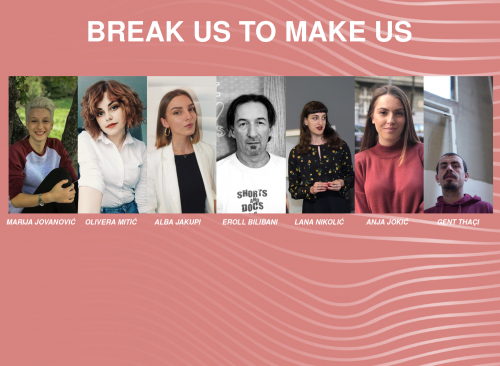
THOUGHTS on TOGETHERNESS
The Dialogue Academy Alumnae network from Belgrade and Prishtinë/Priština is establishing a digital platform fostering exchange of different types of visual art and cooperation regarding women solidarity, solidarity in general and women empowerment with central topic of 'togetherness'. The Dialogue Academy is organized under the auspices of the “Follow Us” Initiative, which brings together prominent women from Prishtinë/Priština and Belgrade and supports empowerment of young women from both societies through education and dialogue initiatives. Lana Nikolić, Eroll Bilibani, Alba Jakupi, Anja Jokić, Gent Thaçi, Olivera Mitić and Marija Jovanović will share their personal experiences on the way forward towards the common ground and how much are our identities important to us and does the concept of togetherness deny them? The speakers will provide examples of finding mutual empowerment in the mutual struggle and will explore possibilities to feel togetherness even with the physical distance, despite the pandemic environment. Finally, after the presentations, Dialogue Academy alumnae will take the opportunity to launch an open call for submission of artworks, followed by selection process, award-giving ceremony for three best artworks and online exhibition. The event is organized with the support of OSCE Mission in Kosovo. About the speakers Lana Nikolić is a philologist, journalist and activist dedicated to the issue of inclusion of young people in general, as well as young people from vulnerable groups. She is a scholar of the Institute for Digital Communications with the “Boris Trivan” scholarship, and the host of Radio Belgrade 202. She is the winner of the Exit Foundation “Youth Heroes”. Lana writes for “Oblakoder” and the “BBC” in Serbian, and she is researching the potential impact of various forms of activism, especially the digital. She was a mentor in two mentoring programmes, and as a mentor, Lana participated in the Creative Mentoring program. She believes that selfless knowledge transfer, hugs and conversations can change the world. Eroll Bilibani is a photographer and film producer; he develops educational programmes in which cinema and storytelling are the means to a greater understanding of complex questions and the promotion of social development. Through DokuLab he curates educational film projects for youth, which are distributed via DokuFest’s Traveling Solar Cinema. He was the executive producer of Daniel Mulloy’s BAFTA winning short Home (2016) and a producer of Samir Karahoda’s short documentary In Between (2019) shown at Berlinale 2019 and is the 2020 EFA award candidate. Alba Jakupi works as a Project Coordinator at Debate Center and FOL Movement. She holds a bachelor’s degree in Political Science from the Faculty of Philosophy at University of Prishtina. Alba is a Scholar of Konrad Adenauer Stiftung as well as an alumna of the OSCE Dialogue Academy for Young Women. One of her strongest points is writing and she has published several research papers, at James Madison University, European University Institute and International Balkan’s University on different political matters concerning the Western Balkans. Alba is a feminist and youth advocate and works towards ending impunity and establish the rule of law in the context of democratic governance. Anja Jokić is a Programme Assistant at the National Youth Council of Serbia (KOMS). She holds a B.A. in Political Sciences - International Relations and is currently a Master’s candidate at the Regional Maste’‘s Program in Peace Studies at Faculty of Political Sciences, University of Belgrade. During her studies, she attended a one-year programme in Women’s Studies, with a focus on the history of feminist movements, the representation of women in media, and gender-based violence. Anja is an alumna of the OSCE Dialogue Academy for Young Women and a recipient of the Scholarship for Peace and Security for 2019 awarded by the OSCE and UN Office for Disarmament Affairs (UNODA). Through her engagement with the OSCE DA alumnae network, she worked on developing the “Academy of Language and Culture” project, a ten-day Albanian and Serbian language and culture programme, as well as taken a role of Mentor in the “Womentorship for Dialogue” programme, and helped organize public events on topics of gender-based violence, women in politics and youth participation. Currently, she is a part of the ‘Young Generations for the new Balkans 2030: Towards Alternative Horizons’- initiative run by International Institute for Peace which sets the spotlight on youth and, together with local and international partners, discusses and analyses the overall situation of the Western Balkans. Gent Thaçi is a social activist from Prishtinë/Priština. He is actively connected with the local grass-root initiatives and he is a co-founder of Prishtina Hackerspace. Gent is currently a Community Organizer at Termokiss. Olivera Mitić studies journalism at the Faculty of Media and Communications of the University of Singidunum and Dutch language, literature and culture at the Faculty of Philology of the University of Belgrade. She is an alumna of the fifth generation of the OSCE Dialogue Academy for Young Women. Olivera puts a great value on the importance of education, which is reflected not only in the different degrees she is pursuing, but also outside of academia. She is a yearlong Red Cross volunteer and has a passion for human rights, social issues and environmental activism. She enjoys working in the spheres of media and culture, with a particular interest in the current world literature scene and translation. She used to write for different media outlets aimed at young people and is still active in the field of youth politics. She is currently located in Belgrade. Marija Jovanović is a 21-year-old youth leader and activist, born and raised in Medvedja. She is studying Dutch language, literature and culture at the University of Belgrade. Marija became interested in human rights ever since she was in high school. She loves debating current affairs including the intersectionality of girls’ and women’s rights around the world, LGBTQI+ discrimination, politics, and anthropological factors that affect climate change. Marija is passionate about advocating for the inclusion of female ethno-diverse voices in leadership and her activism is driven by her own personal experiences and family context. With her passion for creating an equitable world, she’s been active in organisations which are advocating better youth policies because as a young person, she sees the true potential that lies within the youngsters. Marija has a perfect opportunity to merge her passion for women rights and youth activism during the days of OSCE Dialogue Academy.
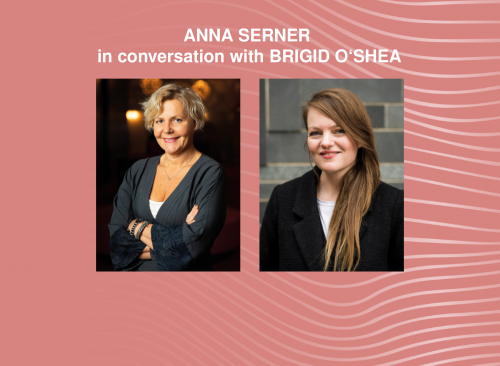
BEYOND 2020 INTO A NEW NORMAL
Anna Serner, director of the Swedish Film Institute in conversation with Brigid O’Shea the co-founder of the Documentary Association of Europe. Following the uncertainties reigning over the global crisis caused by COVID - 19 pandemic DokuFest’s 19th edition moved into a digital sphere. In this situation, the film industry and film festivals are facing challenges beyond any expectation. What will be the steps to adapt to unavoidable circumstances and embrace new realities beyond 2020. We will be proudly hosting Anna Serner, director of the Swedish Film Institute in conversation with Brigid O’Shea the co-founder of the Documentary Association of Europe. Anna Serner Born in 1964, Anna Serner is the CEO of the Swedish Film Institute. She took up the post on October 1st 2011 and had during this period worked hard to achieve a gender equal and inclusive film industry. In 2016 she and the Swedish Film Institute launched the target 50/50by2020. Her previous position was as Managing Director of the Swedish Media Publishers’ Association (Tidningsutgivarna), where she was active in public debate on freedom of speech and the media’s role in society. In addition, she undertook a two-year course in practical filmmaking at the Stockholm School of Film as well as film studies at Stockholm University. Over the past 20 years Anna has created several educations in the aim of getting women to get creative leading positions, and lately to help getting the film industry to prevent sexual harassments. Brigid O’Shea Is an Australian native who has worked for European film festivals and documentary organisations since 2008. Holding a Bachelor of Fine Arts obtained in Melbourne and Berlin, she started as an intern at the Berlinale Talent Campus. She worked for various Berlinale departments as a freelancer until 2014, including the EFM and also Co-Production Market, until taking a more focused approach on creative documentary. This came from coordinating the DOK Industry Programme from 2009-2015, which allowed her to also freelance for the Institute of Documentary Film in Prague, for Documentary Campus Masterschool, and Berlin-based production companies. She was appointed Head of DOK Industry Programme in January 2015. She regularly tutors on topics like European co-financing, cultural management and festival strategies in places like North America and East Europe. In February 2020 she co-launched the Documentary Association of Europe.
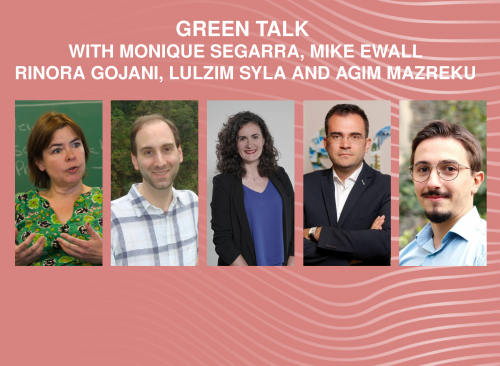
ENERGY DEMOCRACY IN KOSOVO
What are the key strategies to identify the role of power and politics in the regime that resists renewable energy? How are we able to encourage manifestation of energy democracy and how could that impact public behavior to demand infrastructural change for the transition to clean and sustainable energy? The rapid increase in GHG emissions corresponds with the increased combustion of fossil fuels primarily by the energy supply sector at 85% (IPCC, 2014). Science has identified the problem and it also provides the solutions, among which is the critical transformation to low-carbon intensity renewable energy (RE) in the energy supply sector. The RE industry is recognized for its 1 to 10% ratio of carbon intensity to a unit of energy output when compared to fossil fuels (IPCC, 2014). More recently, emerging literature has opened a debate about the role that power and politics may play in the resistance to the socio-technical transition to low-carbon technologies. For the energy sector, the socio-technical systems are characterized by various elements. In addition to social norms that favor continuous production of the energy sector, key elements of this sector are the energy generation, transmission, and delivery infrastructures. The stakeholders of the energy sector can be societal, technical, legislative, regulatory, or political. Their interactions result in dominant practices, rules, and technologies which aim at maintaining stability and reinforcing prevailing socio-technical systems that favor existing pillars of the energy sector. Scholars use the term ‘regime’ for the interactions of actors that seek the status quo of the energy sector socio-technical systems. In comparison to socio-technical transitions to other technologies, the transition to low-carbon energy requires large-scale transformations within society or important subsystems through which the structure of the societal systems changes fundamentally. Other challenges for the transformation of the global energy supply to RE include high investment costs for RE infrastructure, corruption, bureaucracy, and mismanagement of energy resources, oil-backed loans, population growth and increasing per-capita energy demand. One of the solutions to create windows of opportunities for actors that enable the socio-technical transition to clean and sustainable energy is encouraging manifestation of energy democracy principles. The Balkans is a transitioning region wherein hopes for democracy were born but the struggle to enjoy it still remains. The last struggle to build democracy is in Kosovo and Kosovo’s path to its own vision of sustainable development can become an excellent model for the region and the world. In Kosovo, a socio-technical transition to renewable energy through principles of energy democracy can tackle unemployment, progress education, reduce health risks associated with coal usage, and overall sustain a healthy human ecology.
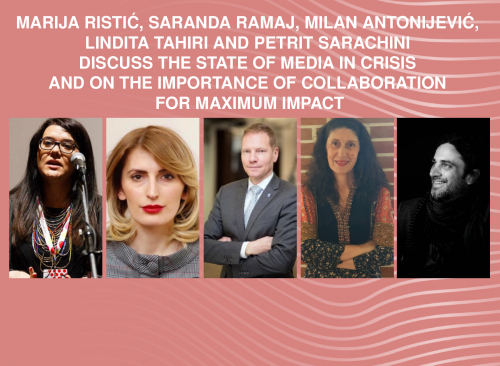
STATE OF MEDIA IN CRISIS
Marija Ristić, Saranda Ramaj, Milan Antonijević, Lindita Tahiri and Petrit Sarachini discuss the state of media in crisis and on the importance of collaboration for maximum impact. Following the uncertainties reigning over the global crisis caused by COVID - 19 pandemic and the latest announcements of the Kosovo government regarding the health and safety situation, we decided to move this year’s edition of the festival into a digital sphere. This year, the festival will roll out online from 7—25 August with specially curated film programs, panels, masterclasses, collaborative workshops and online music performances. One would argue that the diverse media landscape and popularization of social media often expanded the social impact of an investigation, but often due to demand for immediacy, reporters ability to provide context was limited. Our esteemed panelists will discuss the state of investigative journalism in the region, with specific focus on Kosovo and Serbia, where journalists often give up from a story when faced with obstacles and threats. We have included a new competition program named ‘TRUTH’ which is dedicated to tireless investigative works of filmmakers, journalists and activists. We saw this as a good opportunity to connect a film from this program with a panel discussion on a state of investigative journalism in the region, with specific focus on Kosovo, where journalists often give up from a story when faced with obstacles and threats. All panel discussions at our festival are connected to films from relevant programs, and in this case we will be initiating the discussion with reference to documentary film GREEN BLOOD: a result of a collaborative investigation into the practices of three mining companies operating in Tanzania, India and Guatemala. During eight months, forty journalists from fifteen countries have continued the work of local journalists that have been threatened, jailed or killed as the result of their investigation into the environmental and human cost of the mining industry. This documentary is a behind-the-scenes account of this incredible collaboration. The Online Panel discussion is organized with the support of OSCE Mission in Kosovo. The Panel will be in English with simultaneous translation to Albanian and Serbian, streamed online on our Facebook page. Speakers Bio’s: Marija Ristic is an award-winning investigative journalist and regional director of Balkan Investigative Reporting Network. She is in charge of editorial, training, operations and development aspects of the BIRN Network.She started her career as a journalist focusing on topics related to facing the past, reconciliation and transitional justice. In 2015, she produced the documentary ‘The Unidentified’ about war crimes in Kosovo. Ristic is a graduate of the Geneva Academy for International Humanitarian Law and Human Rights and is currently a fellow at the Free University in Berlin. Saranda Ramaj, born in the village of Radavc in Peja, has been a journalist at the newspaper “Koha Ditore” since 2013. The areas she covered are related to health sector and most lately to the justice system. She conducts systematic complex investigations that reveals irregularities in these fields and that are mainly related to corruption and organized crime. Saranda is a multiple award winning investigative journalist for last seven years, including three awards for best Anti-Corruption articles, twice was a laureate of the annual “Rexhai Surroi” award and last year she won the first prize for investigative journalism funded by the European Union. Her research has had an impact on public life. Many investigations and indictments by the State Prosecution have been launched after her reports in the newspaper “Koha Ditore”. With her articles she has also prevented the signing of illegal tenders worth millions, which were mainly for businesses connected to politics. Saranda believes in and is committed to social justice. Milan Antonijevic has been selected as the Executive Director of the Open Society Foundation Serbia, effective December 1, 2018. Milan is a lawyer by training and has devoted his career to date to human rights protection, rule of law and European Union integration. Prior to joining OSF, since 2010 he was the Director of the Lawyers Committee for Human Rights (YUCOM), an organization founded in 1997, where he strongly promoted and advocated for the rule of law and upholding human rights in Serbia and the region of the Western Balkans. With 20 years’ experience in the non-governmental sector and strong public presence in the Serbian media, Milan has worked extensively with civil society, political and social partners in Serbia on various projects including for the United Nations, the Council of Europe, the European Union, USAID, World Bank, and the Organization for Security and Cooperation in Europe (OSCE) among others. Milan is also a member of the Council for Monitoring the Implementation of the Recommendations of the United Nations Mechanism for Human Rights. He has coordinated the National Convention on the European Union for the Negotiation Chapter 23 (on Judiciary and Fundamental Rights) since 2014. Milan holds a law degree from the Belgrade Law School and was a Chevening scholar in the Department for Peace Studies at Bradford University in the UK in 2009/2010. Lindita Tahiri teaches at the University of Prishtina, at the Departments of English Language and Journalism of the Faculty of Philology. Her courses cover Literary Criticism, Stylistics, Media Literacy, Mass Communication, Language and Culture, Language and Ideology and Translation. She has been Vice Rector of the University of Prishtina from 2012-2016. She has been a grantee of the British Council during her MA studies in 1985 at the University of East Anglia, a Fulbright student during the academic year 1986/87 at the University of Chicago, a research assistant at the University of San Diego during 1988 and 1989 and she received the Humphrey scholarship during the academic year 2010/11 at the University of Maryland in Washington D.C. From 2003-2010 she had the position of the Kosova National Coordinator for the European Commission Program for Higher Education “Tempus”. She has publications, including three books, in the field of literary criticism and discourse analysis, as well as two university textbooks in mass communication and media literacy. She has published two collections of poetry and has translated Conrad’s “Heart of Darkness”, as well as prose and poetry from English and American writers including Dickinson, Woolf, Hemingway, Golding. Petrit Sarachini has 25 years of experience in media and communications, as a professional journalist, start up and responsible editor, producer, program manager, columnist (worked in Dnevnik, Lobi, Flaka, Life Radio, CivilMedia, start up editor in TV21, Pressonline etc). He is specialized in diversity and intercultural journalism, and civil journalism production. Has also 1 a half year of experience as editor of fact-checking service Proverkanafakti.mk, and was the start-up editor and of a popular educational website on hate speech, Bezomrazno.mk. Has 15 years of experience in the non-profit sector, worked and cooperated as a media expert in different media oriented CSOs. Has worked as program manager for 10 years in the Macedonian Institute for Media (MIM), leading, managing and participating in South-East European, Western Balkans and national media projects, from idea and project writing to monitoring, evaluation and reporting. His work also included designing and producing comprehensive researches, multi-media content production, production of media literacy tools, and includes 10 years experience of training teachers of primary and high schools, training journalism trainings for beginners and mid-career professionals, delivering trainings and consultancy on communication and public relations to media and public relations professionals in public institutions and civil society. etc. Most of these projects were funded on international and national level by the EU, USAID, UN/UNESCO and other prominent international donor organizations. For 1 academic year, he was also engaged as assistant-professor in online journalism at the State University of Tetovo, Faculty of Law Journalism studies. His working experience also includes PR/communication strategy development and implementation for various government and non-government organisations, and public relations and communication outreach for public administration and CSOs; e.g. worked with team of experts on developing communication strategies and outreach tools and channels for various EU-funded projects, also, with team of MIM experts, participated in developing communication strategies for Ministry of Foreign Affairs, Ministry of Interior, Ministry of Ecology, Secretariat of European Affairs, with CSOs: Macedonian Platform Against Poverty, MCEC, MKC-Bitola, SEGA- Prilep etc. Also worked as a media expert for OSCE-ODIHR in four election observation missions in Macedonia. Specialized in media researches and media monitoring, developer of media monitoring methodologies, co-author and author of several regional and national media researches.
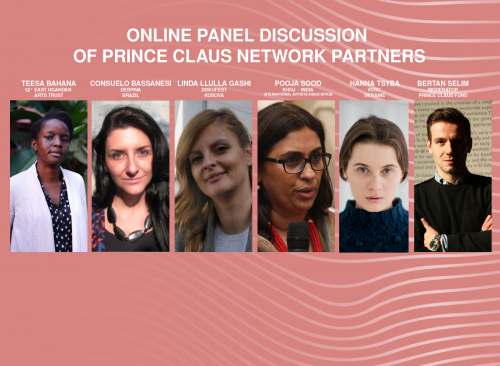
REIMAGINING THE CULTURAL COLLABORATION
Prince Claus Fund partners discuss what will the post-pandemic 'normal' landscape look like in cultural and artistic collaborations and how do we strengthen the links between artistic creation and society during the global health, economic and social crisis? The devastating impacts of the COVID-19 pandemic around the world have been felt in all walks of life in personal, social, cultural and commercial contexts. Innumerable cultural events and venues around the world have closed due to concerns over the pandemic. This is happening right as the film festival season traditionally ramps up in Europe and in the Region. Film festivals traditionally thrive in a communal atmosphere, and the crisis has already upended the timetable of most recent film releases globally. To keep the spirit alive, even in a small way, several festivals have dealt with the cancellation of their live events by bringing some or all of their programs alive, and with the situation improving many organizations are introducing hybrid versions of their festival, by showcasing a modest program in the open-air environments and placing a part of the program online. DokuFest is no exception. We have decided to move our 19th edition of the festival into a digital sphere. This year, the festival will roll out online from 7—25 August with specially curated film programs, panels, masterclasses, collaborative workshops and online music performances. During the lockdown due to novel coronavirus, it was Arts and Culture that provided joy and kept the communities hopeful and resilient. In the first relief efforts, only few countries included support to the cultural sector, leaving the independent cultural sector and majority of cultural workers out of the relief programs. On top of this social distancing and isolation have created an ether of personal spaces, but again, it is in these spaces that we depend on art either through music, films or artworks that we see with our devices. The Prince Claus Fund partners discuss what will the post-pandemic ‘normal’ landscape look like in cultural and artistic collaborations and how do we strengthen the links between artistic creation and society during the global health, economic and social crisis? Moderated by Bertan Selim from Prince Claus Fund, the Panel discussion will bring together Teesa Bahana, Consuelo Bassanesi, Linda Llulla Gashi Hanna Tsyba and Pooja Sood. Bio’s of the participants: Teesa Bahana is director of 32° East Ugandan Arts Trust, a not-for-profit that promotes the creation and exploration of contemporary art in Uganda. As director she has supported the development and execution of projects such as KLA ART Labs for research and critical thinking through public practice, the third edition of KLA ART, Kampala’s public art festival, and residency exchanges with partners such as Arts Collaboratory and the Triangle Network. She is also currently overseeing 32° East’s capital project, raising funds to build the first purpose-built art centre in the country. With an academic background in sociology and anthropology, she is particularly interested in the intersection between art and Ugandan society, and how artistic environments should be protected and nurtured. Pooja Sood is a founding member and Director of Khoj International Artists’ Association which is an autonomous, not for profit society committed to experimentation and exchange in the visual arts in India.. Under her stewardship, Khoj has grown from an annual event in 1997 to a small but vibrant building based institution which plays a central role in the development of experimental, interdisciplinary and critical contemporary art practice in India and South Asia. As Director of Khoj, she has worked actively to build a robust network of experimental spaces across south Asia resulting in the South Asian Network for the Arts ( SANA). Pooja Sood’s contribution has been in the field of curating alternative contemporary art practices in India as well as exploring different models of collaboration and institution building in India and South Asia. Linda Llulla Gashi, lives and works in Prizren, Kosovo. After graduation since 2010 she worked as Project Manager for Dokufest “Schools and Documentaries” project. Through this project she helped establishing film clubs in high schools all over Kosovo where student s can watch documentaries and trained teachers on how to use documentaries as alternative method for teaching. She also ran Documentary film school “Future is Here” for seven generations where high school students make short documentaries about human rights and social issues. She is Executive Producer of 36 documentaries made through Documentary film school “Future is Here”. Together with teachers she worked on developing a methodology and film guides that are aligned with national curricula. She is part of a feminist movement FemAktiv. In 2019 she was appointed Executive Director of DokuFest. Consuelo Bassanesi is Artistic Director and a founding member of DESPINA, a non-profit cultural organisation committed to develop platforms for research, production and exchange in the fields of art and cultural activism. Established in 2013 in Rio de Janeiro, Brazil, the space hosts art studios, courses, exhibitions and a residency programme that has received over 120 artists from about 15 countries. Is directly involved in the exhibitions programme, as well as in developing projects such as Iran-Rio Art Connection and Art and Activism in Latin America. Also responsible for institutional relations and ensuring DESPINA sustainability through projects, visibility and partnerships. Worked in collaboration with a number of organizations such as Prince Claus Fund, British Council and University of the Arts London - Central Saint Martins. BA in Journalism (PUC-RS) and MSc in Global Politics (Birkbeck, University of London). Is part of the feminist collective Vem pra Luta Amada, and the groups Censura Nunca Mais (against censorship in arts) and Nossa Hora de Legalizar o Aborto (abortion rights movement). Hanna Tsyba (1988) is an independent curator and manager for cultural projects, art critic, and researcher based in Kyiv. Hanna holds an MA in Cultural Studies. The field of her research interests includes contemporary art and politics, with a focus on the creative practice of horizontal left and feminist movements, as well as film and Soviet Studies. She has been involved in running a non-commercial Visual Culture Research Center (VCRC) in Kyiv for over ten years. Bertan Selim (1980) is an editor, curator and consultant in the arts, specialised in international grant making, storytelling and photography. Bertan currently works as head of Grants and Collaborations at the Prince Claus Fund in Amsterdam. In 2020 Bertan founded the VID Foundation for Photography to support photography in the Balkan region.
